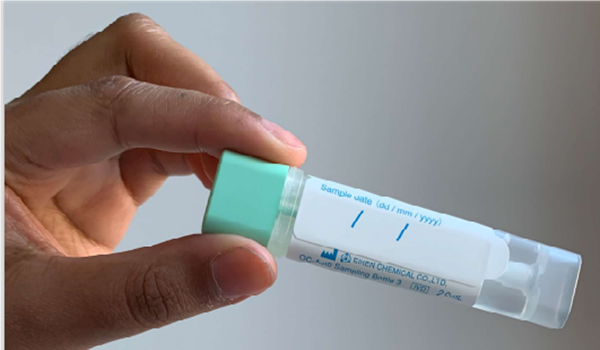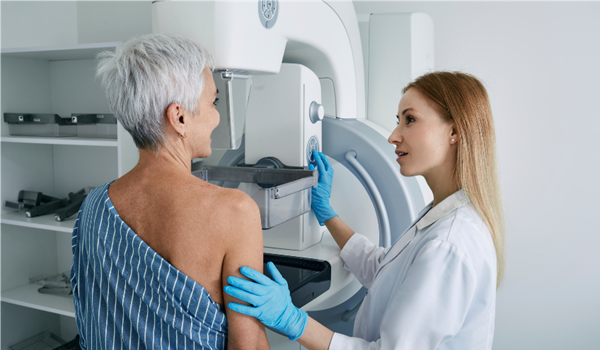Cancer
One in two people will be affected by cancer at some stage in their life. It is important not to hide away from cancer but to spot it early on.
Understanding Cancer
Cancer is a disease that occurs when abnormal cells in the body grow uncontrollably. It can develop in almost any part of the body and may spread to other tissues if left untreated. Early detection and timely treatment play a crucial role in improving outcomes.
Signs and Symptoms
Recognising the early signs of cancer can make a significant difference in treatment success. Some common symptoms to be aware of include:
-
Unexplained weight loss
-
Persistent fatigue
-
Changes in bowel or bladder habits
-
Unusual lumps or swelling
-
Difficulty swallowing
-
Persistent cough or hoarseness
Know the Signs is campaign is to help people recognise the signs and symptoms of cancer and when to go and seek advice from their GP Practice.
For more information on early cancer signs and awareness campaigns, visit the Wessex Cancer Alliance.
Types of Cancer
There are over 200 different types of cancer, with some of the most common including:
-
Breast Cancer – Affects breast tissue and is more common in women. Find out more here
-
Lung Cancer – Often linked to smoking, but can also affect non-smokers. Find out more here
-
Prostate Cancer – A common cancer in men, affecting the prostate gland. Find out more here.
-
Oesophageal Cancer – Affects the food pipe (oesophagus) and is often linked to acid reflux and Barrett’s oesophagus. Learn more about Oesophageal Cancer Awareness Month 2025.
National Screening Programmes

Bowel Screening
FIT (Faecal Immunochemical Test) is a test that looks for tiny traces of blood in a sample of your poo.
Traces of blood in your poo can be caused by other medical conditions and doesn’t always mean you have cancer. But if it is cancer, finding it at an early stage means treatment is more likely to work.
If you are aged 50-74, you will receive a FIT test in the post as part of the national screening programme. It is important to complete the FIT test so that you can spot any potential health conditions early, and have better control over your gastrointestinal health.

Breast Screening
Breast screening (also known as a mammogram) is a test that looks for breast cancer even in the absence of symptoms. It is important to attend your breast screening appointments, as well as checking your breasts at home for any lumps or changes. If you notice any changes in your breasts, please speak to your GP as soon as possible.
Breast screening saves around 1,300 lives every year in the UK, as spotting breast cancer early gives you the best treatment outcome.
If you are female, and aged 50-71, you will automatically be invited to have a mammogram.

Cervical Screening
Cervical screening helps to prevent cancer by spotting any changes to your cervix that could develop into cancer if left untreated. During your appointment, a small sample of cells will be taken from your cervix and checked for high-risk types of human pappilomavirus (HPV).
If you are female, and aged 25-64, you will automatically be invited to attend.
Dorset Lung Cancer Screening
Lung Cancer Screening is a new service in Dorset that will be offered to those aged 55 to 74 who are current or former smokers. Following an initial telephone conversation with a health professional, anyone who has a higher chance of developing a lung condition, including lung cancer, will be offered a low dose CT scan of their lungs.
You will be invited for a Lung Cancer Screening assessment even if you feel fit and healthy and currently have no lung problems, or if you currently have a lung condition.
Lung Cancer Screening assessments are a really important check-up of the overall health of your lungs and can spot any early signs of lung problems, often before you notice anything is wrong. This means that, if lung cancer, or another problem with your breathing or lungs is found at an early stage, treatment could be simpler and more successful.
The Dorset Lung Cancer Screening is being run by specially trained nurses from Dorset County Hospital. All assessments are offered as telephone assessments for patient ease.
The nurse will ask you some questions about your breathing, overall lung health past medical history, family history and lifestyle. They will also ask for your height and weight to calculate your BMI.
The nurse may also talk to you about having a lung scan. If you are invited to a lung scan, you will be asked to travel to the appointment which will be provided from either University Hospitals Dorset (Poole) or Weymouth Hospital.
You will be contacted with the results of the CT scan via letter or telephone call. A copy of your results letter will also be sent to your GP.
For more information, please visit https://www.dchft.nhs.uk/service/lung-health-check
Prevention and Risk Reduction
While some cancers develop due to genetic factors, many cases can be prevented through lifestyle changes, such as:
-
Eating a balanced diet rich in fruits and vegetables
-
Maintaining a healthy weight
-
Avoiding tobacco and limiting alcohol consumption
-
Protecting skin from excessive sun exposure
-
Undergoing regular cancer screenings
Within Your Surgery
Our GP’s have years of expertise in identifying cancer symptoms and referring patients appropriately, in a timely manner. You will have access to a cervical smear clinic provided by the practice nurses within your surgery. Taking part in national screening programmes for Bowel, Breast, and Cervical cancers can increase the chances of cancer being found early, giving you a better chance to stay healthy for longer.
Within the PCN
We have a dedicated GP cancer lead who is working with nurses and GPs within the surgeries to provide biannual cancer network meetings, to ensure as a PCN we are up to date with training, information and guidance around cancer care.
Cancer Care Reviews
If you are diagnosed with cancer, you will be supported by your surgery throughout your journey and will be offered cancer care reviews at 3 and 12 months after diagnosis. These reviews are an opportunity to discuss your diagnosis, treatment, and concerns, as well as address any needs and offer advice and signposting to relevant support services within your area.
Support and Resources
If you or a loved one has been diagnosed with cancer, there are many support services available to help you navigate this journey.
Wessex Cancer Alliance
The Wessex Cancer Alliance offers guidance, treatment options, and support for those affected by cancer.
Know the Signs
Know the signs is campaign is to help people recognise the signs and symptoms of cancer and when to go and seek advice from their GP Practice.
Heartburn Cancer UK
Awareness about the risks and symptoms of oesophageal cancer – one of the most challenging cancers to detect early.
Easy read screening information
Easy read information on screenings and general appointments.
Know Your Lemons - For Early Detection
Useful app to remind you about checking your breasts.
Page created: 17 June 2024
